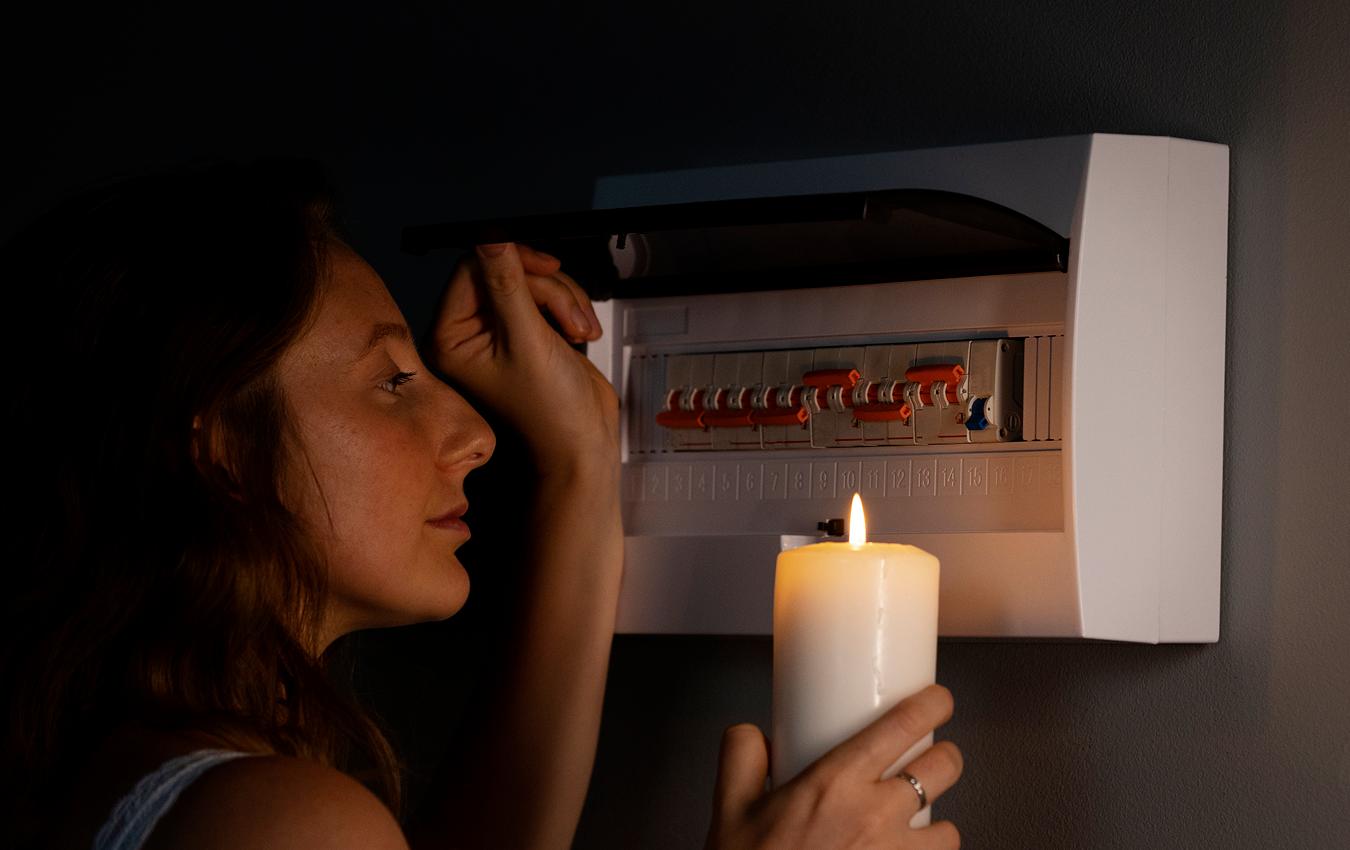In an increasingly tech-dependent world, possessing a basic understanding of electricity and its common issues is more than just a handy skill – it’s a necessity. Whether you’re a homeowner dealing with a power outage or an office worker trying to figure out why your computer won’t turn on, electrical knowledge can save you time and money.
In this article, we will look closely at some of the most common electrical problems and solutions, including power outages, circuit breaker tripping, electrical wiring issues, outlet problems, and flickering lights. We aim to equip you with the knowledge to identify these issues, understand their root causes, and explore effective solutions. By doing so, we empower you to tackle electrical problems with confidence and safety.
So buckle up and get ready to power up your knowledge about electricity and its common problems.
Common Electrical Problems and Their Solutions
There can be a great variety of electrical problems, and it is impossible to be prepared for everything. However, we can highlight the most common of them:
Power Outage and Troubleshooting Techniques
Power outages can be due to many reasons, from severe weather conditions to issues with your local power company. However, if the outage is exclusive to your home, it’s likely due to a tripped circuit breaker or a blown fuse. Begin by checking your electrical panel. If a breaker has tripped, flip it back to the ‘on’ position. If you have a blown fuse, you’ll need to replace it with a new one. If the problem persists, it might be time to call a professional electrician.
Circuit Breaker Tripping and How to Resolve It
Circuit breakers are designed to trip as a safety measure when they detect an overload or short circuit, preventing potential fires. If your breaker is frequently tripping, it could indicate that too many appliances are running on the same circuit. You can resolve this by unplugging some devices or moving them to another circuit. If it continues to trip despite these measures, it’s best to consult with a professional, as it could be a sign of a more serious problem.
Electrical Wiring Issues and Solutions
Faulty wiring is a common cause of electrical problems and a major fire hazard. Signs of wiring issues include dimming or flickering lights, burning smells, or discolored outlets. If you suspect a wiring issue, it’s essential to contact a licensed electrician. DIY electrical repairs can be dangerous and are generally not recommended.
Outlet Problems and Troubleshooting Tips
From overloaded outlets to loose connections, outlet problems are another typical electrical issue. If an outlet isn’t working, try plugging your device into a different one to see if the problem lies with the device or the outlet. If the outlet is the issue, check your circuit breaker for any tripped circuits. If the outlet still doesn’t work, it’s time to call an electrician.
Flickering Lights and Their Causes
Flickering lights can be a symptom of several issues, from a simple bulb problem to more serious wiring concerns. First, try replacing the bulb. If the flickering continues, it could indicate a loose or outdated light fixture or a problem with your home’s wiring. As with any potential wiring issue, it’s best to consult with a professional to avoid any risk.
Need a trusted and skilled electrician for your home? Want to install, fix, or improve your lighting, wiring, or appliances? Want to save money and energy with smart and green electrical solutions?
Choose Premier Electrical Services. We are a licensed and insured electrical contractor with over 20 years of experience. We offer free estimates, flexible scheduling, and 24/7 emergency service. Contact us today to get started on your next electrical project. Please, call us at 954-900-1696
Solutions for Specific Electrical Issues
Electricity is not something to experiment with, and safety should always be your top priority. However, while calling a professional electrical repair service is always the best choice, some issues you can fix on your own. Here are some common electrical problems and solutions:
How to Fix a Continuously Tripping Circuit Breaker
If your circuit breaker is continuously tripping, it could be due to an electrical overload or a short circuit. Start by unplugging all devices from the circuit, then reset the breaker. Plug in the devices one at a time to identify if a particular device is causing the issue. If the breaker continues to trip despite these measures, it’s best to call a professional to inspect your electrical system for more complex issues.
Steps to Troubleshoot a Dead Outlet
When an outlet stops working, check other outlets to ensure the issue isn’t a larger power outage. If only one outlet is affected, try resetting any tripped breakers or replacing any blown fuses in your electrical panel. If this doesn’t resolve the issue, the outlet itself may need to be replaced. This should be done by a qualified electrician.
Rewiring Basics and Common Mistakes to Avoid
Rewiring a home is a complex task that should be left to professionals due to the high risk of electrical shocks and fires. However, understanding the basics can help you avoid common mistakes. Ensure the power is off before beginning any work, use the correct type of wire for each task, and never leave any wire connections exposed. Always adhere to local building codes and regulations.
How to Handle Overloaded Circuits
Overloaded circuits occur when too many devices draw power from the same circuit. To prevent this, spread your electrical devices across multiple circuits. If certain appliances require a lot of power, consider having a dedicated circuit installed for them. Regularly tripping breakers are a sign of overloaded circuits, and if they persist after redistributing your devices, consult with an electrician.
Dealing with Frequent Light Bulb Burnout
If your light bulbs burn out frequently, it could be due to several factors, including using a bulb with a higher wattage than your light fixture can handle, poor connections, or excessive voltage. Try using bulbs with the correct wattage for your fixtures, and ensure they’re screwed in securely. If you suspect your home’s voltage is too high, an electrician can test it and provide solutions.
Advanced Electrical Problems and Troubleshooting
Don’t try to solve complex issues on your own. However, it would help if you still had a general idea about advanced electrical problems and solutions. This will let you find common ground with a professional electrician.
Diagnosing Faulty Ground Wires
Ground wires play a crucial role in preventing electrical shocks and fires. Signs of faulty ground wires include flickering lights, frequent blown fuses, and electrical shocks when touching appliances. To diagnose a ground wire issue, an electrician can use a multimeter to check for proper grounding. If a fault is detected, they will replace or repair the ground wire.
Identifying and Fixing Short Circuits
Short circuits occur when an active (hot) wire comes into contact with a neutral wire, causing a large amount of current to flow and trip the circuit breaker. Symptoms include blackened walls or outlets, a burning smell, or frequently tripped breakers. Identifying the source of a short circuit can be complex. It should be done by a professional who can safely isolate the problematic circuit and fix the issue.
Troubleshooting Electrical Surges
Electrical surges can be caused by various factors, including lightning strikes, faulty appliances, or issues with your home’s wiring. Frequent surges can damage your electrical devices. To troubleshoot, try unplugging and replacing suspect appliances to see if they’re causing the surge. If surges continue, it’s best to hire a professional to inspect your electrical system.
Handling Electrical Shocks and Safety Precautions
If you experience an electrical shock, it’s a clear sign of an electrical problem. Small shocks from appliances can indicate a ground fault in the appliance or improper electrical wiring. Always turn off the power before unplugging the device and consult with an electrician. To prevent shocks, always keep your devices in good condition, avoid overloading outlets, and consider installing ground-fault circuit interrupters (GFCIs) in areas with water, like bathrooms and kitchens.
Prevention and Maintenance Tips
Be proactive about electrical maintenance and safety. Thus, you can prevent common electrical issues and ensure your home’s electrical system remains safe and functional.
Importance of Regular Electrical Inspections
Regular electrical inspections are crucial in preventing potential hazards. They can help identify outdated wiring, overloaded circuits, or faulty equipment before they lead to more serious problems. Consider having a professional electrician inspect your home’s electrical system every few years or more frequently if you live in an older home.
DIY Electrical Maintenance for Homeowners
While most electrical work should be left to professionals, there are some simple maintenance tasks homeowners can do. These include regularly checking for any signs of outlet or switch damage, ensuring all outdoor electrical fittings are weatherproofed, and keeping an eye on your breaker panel for any tripped circuits or unusual behavior.
Common Signs of Potential Electrical Problems
Stay vigilant for signs of potential electrical problems, such as flickering lights, buzzing sounds from outlets or switches, frequent breaker trips, or unusually high electricity bills. These could indicate underlying issues that need immediate attention.
How to Protect Electrical Devices from Power Surges
Power surges can cause significant damage to electrical devices. To protect them, use surge protectors for all major appliances and electronics. Furthermore, consider installing a whole-house surge protector to safeguard all your circuits. In areas prone to lightning strikes, additional surge protection measures may be necessary.
Conclusion
Dealing with electrical issues can be intimidating, but having some basic knowledge can make it easier to identify problems and know when to call a professional. We’ve covered various topics, from simple fixes like troubleshooting a dead outlet or dealing with frequent light bulb burnouts to more advanced issues like diagnosing faulty ground wires and handling electrical shocks.
While it’s beneficial to understand your home’s electrical system and how to maintain it, remember that electricity is not something to experiment with. Never attempt to handle complex electrical problems on your own if you’re not a trained electrician. That’s why you should always keep in touch with Premier Electrical Service. We can handle any electrical challenge, big or small. Please, call us at 954-900-1696 today!
Check out the latest news:
- Commercial Energy Audit: Spotting the Sources of Energy Waste
- Protect Your Fort Lauderdale Home with Whole-House Surge Protection
- Power Outages in Fort Lauderdale: How to Protect Your Home
- Preparing for a Home Rewiring Project: A Checklist for Homeowners
- 5 Critical Signs You Need a Whole-House Surge Protector






